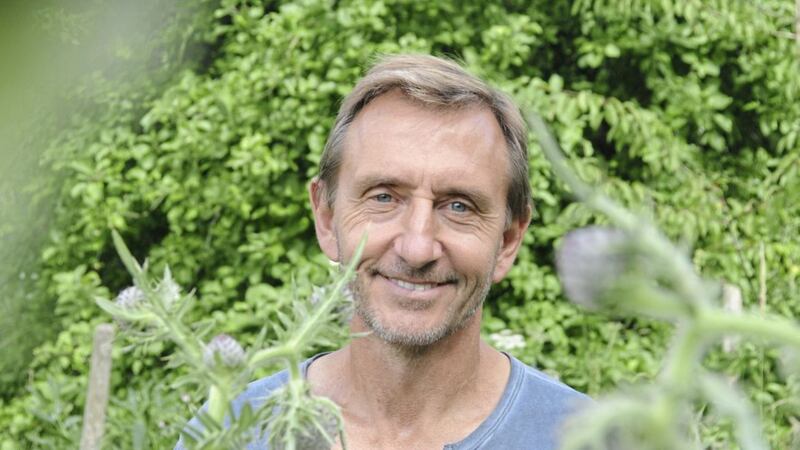PROFESSOR Dave Goulson reckons we’ve had too many television documentaries about large predatory mammals and that it’s now time to focus on insects.
“Right under our noses there’s all sorts of really bizarre things going on – you can see it all for yourself if you get down on your hands and knees,” he says.
“Earwigs, for example, are fascinating creatures – they are very paternal, guarding their eggs and licking them to keep them clean but there comes a certain point, when the young are old enough, that they shoo them from where they nest and if they don't leave, the parents eat them.”
His latest book, The Jungle Garden, is replete with such microscopic drama but at the same it looks at the big picture – climate change and the destruction of the natural world.
Goulson thinks we’ve focused too much on human pleasures in the garden at a cost to wildlife and through his writing he seeks to redress this imbalance.
The Jungle Garden is about the wildlife that lives in our gardens and parks, between the gaps in the pavement, and in the soil beneath our feet – the worms, woodlice, bees, centipedes, earwigs, silverfish, wasps, beetles and mice, quietly living within just a few paces of us.
In what is often a sobering read, the author explains how our lives and ultimately the fate of humankind are inextricably intertwined with that of insects.
The book nags the reader about the environmental harm inadvertently, and sometimes deliberately, done by gardeners, who buy intensively reared plants in disposable plastic pots, sprayed with pesticides and grown in peat cut from the ground.
In 2017 it was the author's research that forced the Royal Horticultural Society to review its 'Perfect for Pollinators' scheme – an easy-to-spot logo that was supposed to mean the plants on sale were best for attracting bees. The University of Sussex academic discovered that many plants sold with the logo in garden centres contained three neonicotinoid-based insecticide products banned by the EU – the very chemicals being blamed for a rapid decline in the bee population.
In The Garden Jungle, Goulson sets about persuading us to garden more gently and invite nature into what many gardeners traditionally viewed as deliberately sterile spaces.
"We've lost sight of the fact we’re part of nature and gardens are a great place to reconnect with nature, even in a city a small garden can be full of life," he says.
He wants to our urban gardens and parks into nature reserves: "Collectively, gardens and parks are a great network of mini-habitats that could be a powerful way to at least partly halt this biodiversity crisis."
DAVE GOULSON'S TIPS FOR GREENING YOUR GARDEN:
:: Water – get yourself a pond. It doesn’t necessarily have to be big but water is the best single measure you can take to attract wildlife.
:: Don’t use pesticides – this is perhaps stating the obvious but you only have to look at the supermarket and garden centre shelves to appreciate there’s still a big market for this stuff.
:: Compost – I’m amazed by the amount of gardens that don’t have a compost heap. This is a win-win situation because you get to your compost to fertilise your garden and they teem with life.
:: Don’t buy peat-based compost – again very obvious but nonetheless it needs saying. Digging up peat bogs which are massive stores of carbon son we can grow flowers in our garden is insane from an enviromental perspective.
:: Grow dual-purpose plants – by this I mean growing plants that we can eat but also have additional benefits, like providing food for wildlife and flowers for pollinators. Fruit trees and herbs like rosemary, marjoram and catmint are good in this regard.
:: The Jungle Garden by Dave Goulson is published by Cape, priced £16.99.








